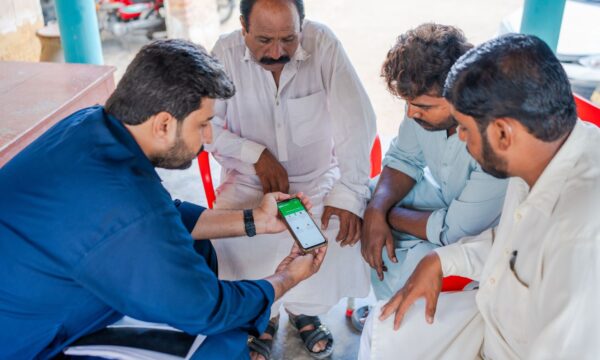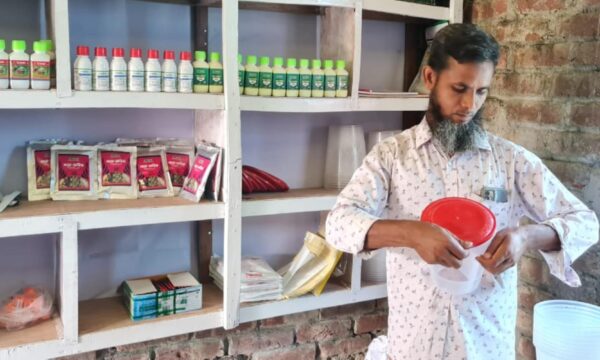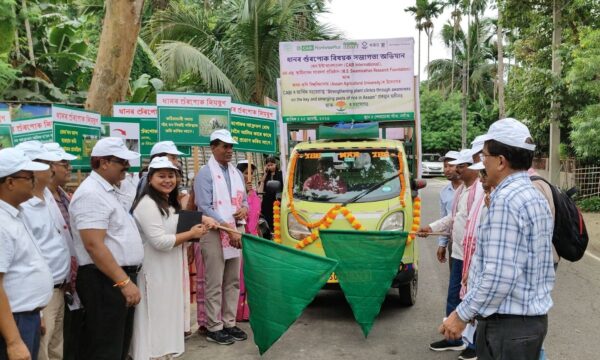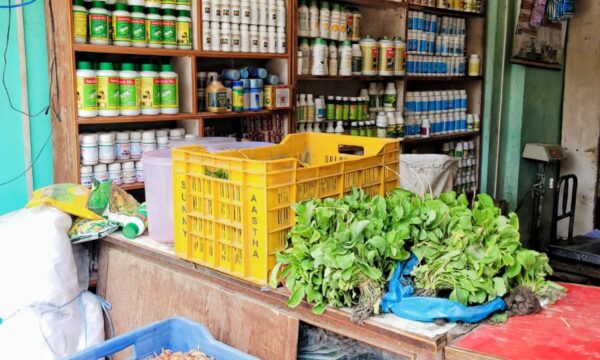
Women carry a heavier burden of unpaid care work because of gender disparities. Unpaid care and domestic work include activities such as cooking, cleaning, and caring for the dependents in the household. This burden poses economic challenges for countries that depend on agriculture, such as Burundi. Burundi is a landlocked country in the African Great Lakes region of East Africa.
In Burundi, the high population density leads to smaller plots for agriculture. Men tend to have more decision-making power when it comes to commercial crops, which increases with larger landholdings. Women farmers face many challenges, including access to and ownership of essential agricultural resources. These hinder their ability to improve their livelihoods and take on new opportunities.
Addressing gender issues in agriculture can enhance agricultural output in low-income countries while providing women with economic empowerment. One aspect is to recognize and address the disproportionate responsibility of women within households when it comes to unpaid care work. While most efforts to close gender gaps focus on women, involving men is becoming a recognized necessity.
The burden of unpaid care work in Burundi
The gap in unpaid care work can largely be attributed to gender norms where caregiving is viewed as a woman’s responsibility. Economic and workplace norms also reinforce these traditional divisions of labour. The gap is affected by a few things, including a lack of strong gender equality policies. And, society often resists men’s involvement.
A new study led by CABI examines the factors that encourage men in Burundi to take on certain aspects of unpaid care work, such as time allocation and role distribution, and its impact on women’s participation in agriculture. It also sought to investigate what affects men’s and women’s participation in unpaid care work. The authors also made suggestions on how to reduce this gender gap.
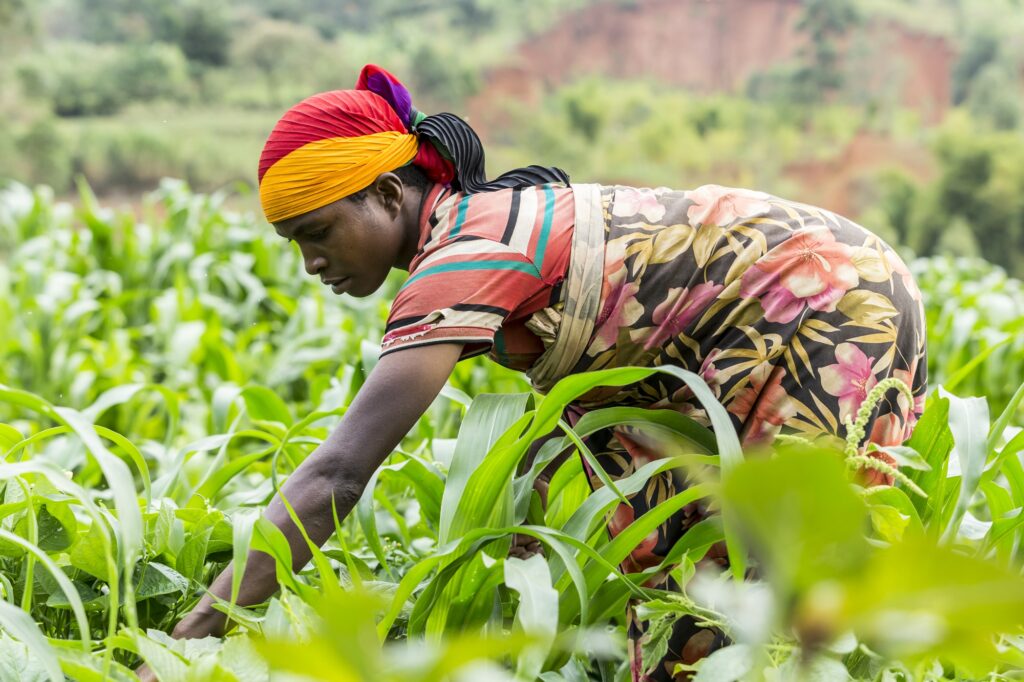
The research, published in CABI Agriculture and Bioscience,under CABI’s PlantwisePlus programme, focuses on plant health. PlantwisePlus uses gender-specific interventions, such as strengthening pest management skills and supporting female and male farmers with access to extension services.
In 2021, researchers conducted two surveys: the first was a baseline survey of 946 farm families in eight provinces, while the second was a Rapid Care Analysis survey of two communes across Burundi. The two communes represented diverse perspectives, with 20 women and 20 men from each commune. The surveys also gave prominence to women’s voices, collecting multiple aspects of the realities of unpaid care work.
Research reveals an unequal burden
Researchers found that women work 13 hours per day, dedicating seven hours to productive or market work and six to unpaid care work. They found that men work seven hours per day on productive or market work with zero hours spent on unpaid care work.
So, although both women and men spent the same amount of time on productive or market work, women had additional responsibilities, resulting in a longer working day. This aligned with research conducted in Kenya, where women worked the same number of hours but earned less than men.
The unpaid care work women took up was routine and repetitive, something they had to do daily. Men usually assumed a small number of activities that required mobility or physical strength. For example, buying medicine or digging a household toilet. These were sporadic activities that were only performed as needed.
What factors affect participation in unpaid care work?
The paper states that social dynamics drive involvement in unpaid care work, and different factors affect them. Some external factors include seasons, environmental patterns, and displacement. Internal factors include pregnancy, illness, and old age.
The researchers found that larger households tend to need more care, leading to higher involvement from both women and men. This is dependent, however, on the makeup of the household. With more members above 65 years old, men’s participation also increases. This is due to wanting to ease some of the burden from women. However, men participate less when the household includes children under 15 years old. Families entrust those children with unpaid work themselves, like fetching water and firewood.
Higher education levels have a positive effect on men’s participation, as they could get a better understanding of gender dynamics. It is also seen that education can lead to equal opportunities for economic employment for both men and women.
Additionally, higher income levels can lead to reduced participation from men in unpaid care work; they tend to hire household help instead. When the economy grows, unpaid work diminishes, alleviating the burden on the women of the household.
The authors also noted that joint decision-making in the household can allow both women and men to share responsibilities. If households make decisions together on resource allocation and income use, they can distribute unpaid work more fairly.
How can gender equality be improved?
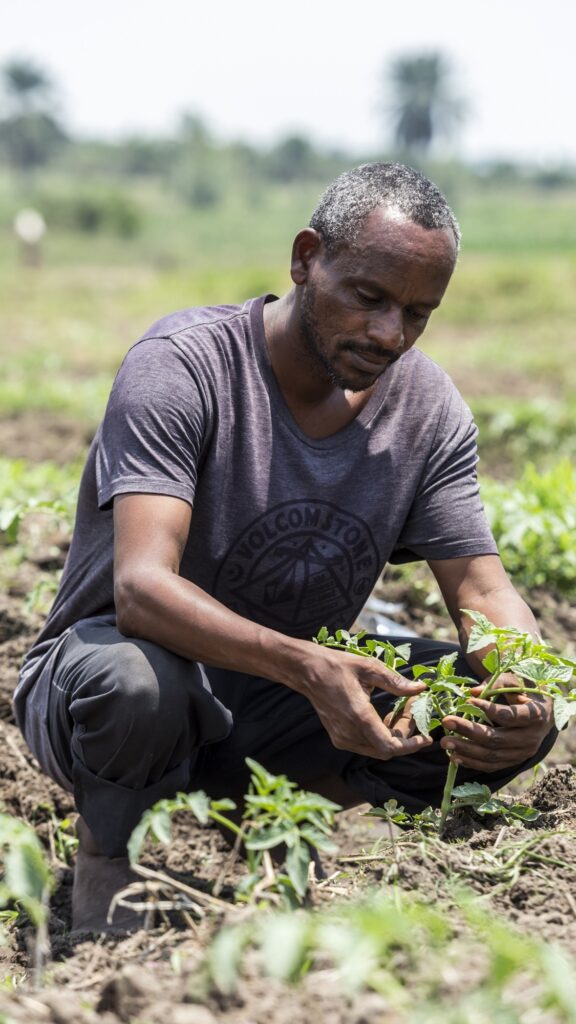
The authors made recommendations based on the results of their study. They emphasize the importance of recognizing unpaid care work in the first place. Strategies should be put into place to acknowledge unpaid care work and to transition it to paid labour.
They also suggest that investing in water and energy infrastructure, elderly care, and educational facilities will be integral steps to improving gender equality. These measures will lessen the time spent on burdensome unpaid tasks, reduce caregiving time, and decrease the time children spend on unpaid care work.
Redistributing care work also benefits both women and men. Women can explore more holistic opportunities and connect with their community. Men can strengthen their bonds within the household and have a more balanced lifestyle.
Ultimately, promoting positive masculinity through formal and informal initiatives can contribute to improving gender equality. These initiatives can challenge and change conventional stereotypes, while practical skills training that showcases successful male farmers who participate in unpaid care work can connect with and inspire other men to do the same.
Read the research in full with open access:
Musyoka, M.P., Ochilo, W.N., Ntirampeba, L., et al. Can men unburden women from unpaid care work? Evidence from Burundi. CABI Agric Biosci 6, 1 (2025). https://doi.org/10.1079/ab.2025.0008
More like this
How community conversations help to close the gender gap in Burundi
Overcoming social norms to boost women farmers’ access to agricultural advisory services
PlantwisePlus gratefully acknowledges the Embassy of the Kingdom of the Netherlands in Burundi, Ministry of Foreign Affairs of the Netherlands, for its financial support of our work in Burundi.
Related News & Blogs
In photos: how plant clinics support advisory services in Bangladesh
Over the past decade, CABI has worked in Bangladesh to strengthen national plant health systems, first through Plantwise and since 2021, PlantwisePlus. The programme works with partners to ensure farmers have access to reliable, science-driven crop hea…
24 February 2026

